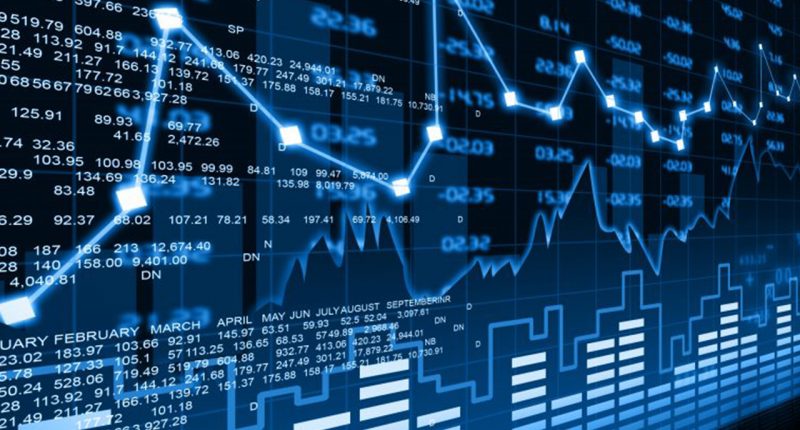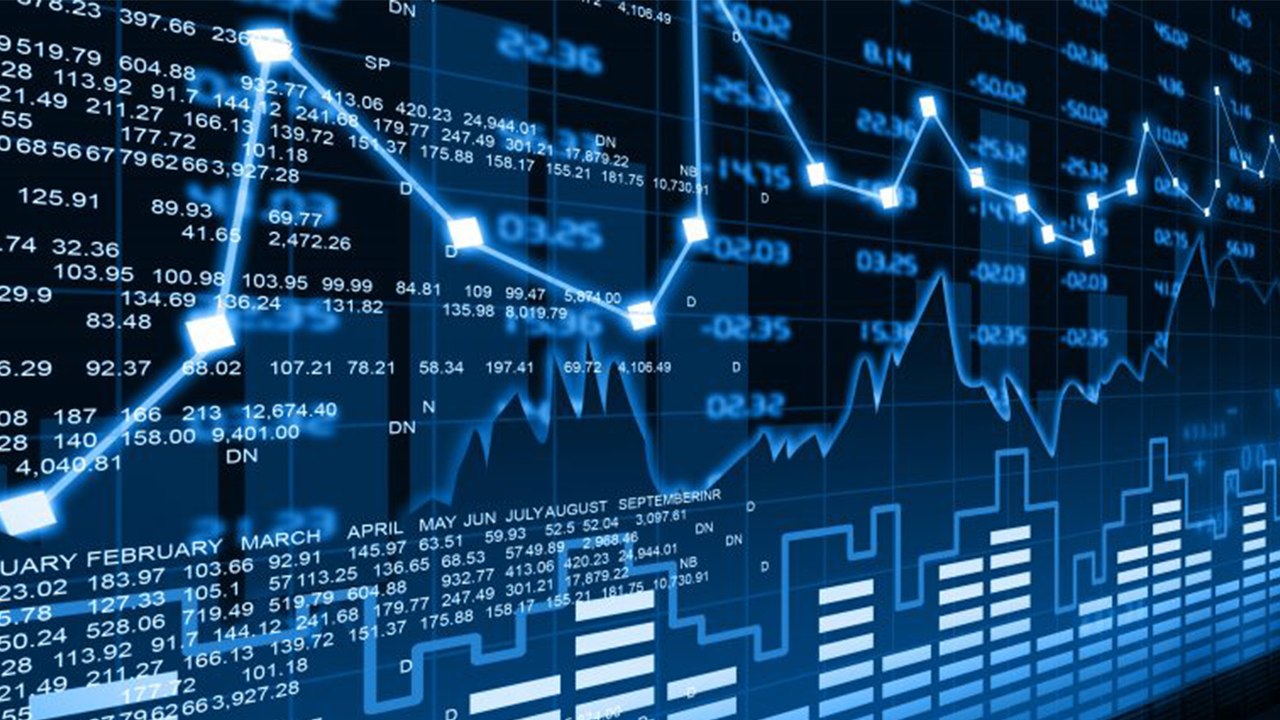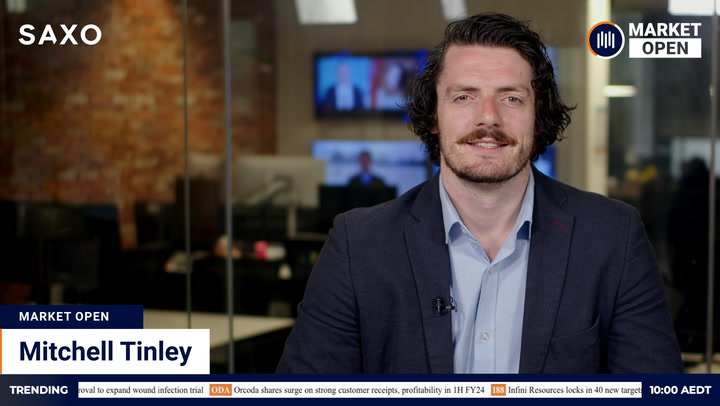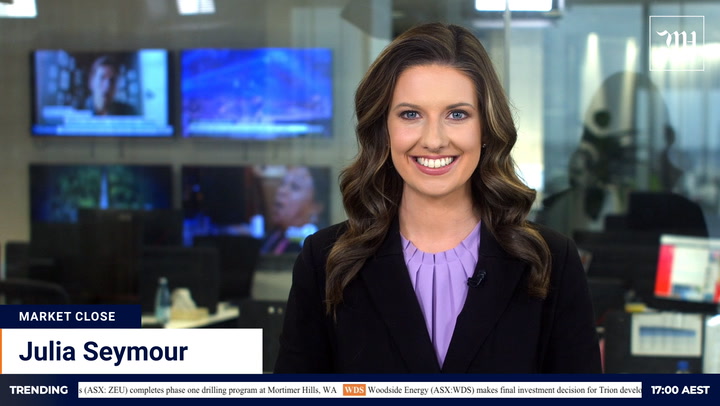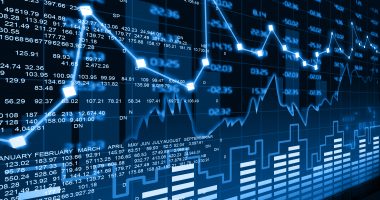The share market briefly unwound half of last month’s gains before paring its loss following stronger-than-expected GDP data.
The S&P/ASX 200 was last down 37 points or 0.5 per cent after earlier slumping 73 points to its lowest in eight sessions. The index halved its initial loss after Q2 data confirmed the economy had avoided a recession.
Two-thirds of the heavyweights of the ASX 20 declined. Wesfarmers and the major miners led the retreat. Newcrest, Telstra and NAB bucked the downtrend.
What’s driving the market
Spring brought an unwelcome blast of cold air for investors. Half of last month’s hard-earned 142-point gain was blown away in the first 20 minutes of trade.
Mild overnight falls on Wall Street accounted for some of the weakness. The S&P 500 and Dow dipped a little more than 0.1 per cent from record levels.
A bigger headwind blew from the bonds market, where the yield on ten-year Australian government bonds surged almost nine basis points to the highest in six weeks. Rising lending costs are a positive for lenders, but a negative for high-growth sectors like technology and for defensive assets that attract fund flows when returns on bonds are weak.
The market came off its low after GDP data confirmed the economy avoided a recession, for now at least. GDP grew a seasonally-adjusted 0.7 per cent last quarter, down from growth of 1.9 per cent over the first three months of the year, but stronger than the consensus 0.5 per cent. Annual growth jumped to 9.6 per cent as last year’s initial 7 per cent pandemic hit fell off the rolling figure.
“Domestic demand drove growth of 0.7 per cent this quarter which saw continued growth across household spending, private investment and public sector expenditure,” Michael Smedes, Head of National Accounts at the ABS, said.
“Lockdowns had minimal impact on domestic demand, with fewer lockdown days and the prolonged stay at home orders in NSW only commencing later in the quarter.”
With the economy certain to contract this quarter, a negative reading last quarter would have pointed to a technical recession, defined as two quarters of negative growth. Government spending was the biggest contributor in Q2, according to economist Stephen Koukoulas.
“Let’s all hail the government sector!” he tweeted. “Of the 0.7% GDP growth, all 0.7% was from public sector consumption and investment.”
Manufacturing activity expanded for a 15th month, but growth was the slowest in ten months as lockdowns crimped output. The Australian Industry Group’s Performance of Manufacturing Index fell to 51.6 last month from 60.8 in July.
Going up
Gold’s traditional role as a hedge against inflation helped precious metal miners outperform. Silver Lake Resources climbed 3.27 per cent, St Barbara 2.69 per cent, Evolution 2.81 per cent and Newcrest 2.18 per cent.
Energy stocks also resisted the trend as oil advanced ahead of tonight’s OPEC+ meeting. Woodside edged up 0.62 per cent from yesterday’s nine-month low. Beach Energy gained 2.38 per cent, Santos 0.33 per cent and Oil Search 0.13 per cent.
NAB was the best of the big four banks, rising 1.01 per cent. Westpac edged up 0.27 per cent, CBA fell 0.22 per cent and ANZ 0.47 per cent.
Travel and tourism stocks rallied amid speculation about borders reopening once vaccination rates hit critical milestones. NSW Premier Gladys Berejiklian said she was “committed to making sure NSW residents have access to international travel once we hit that 80 per cent double dose”.
Qantas rose 2.55 per cent to a level last seen in April. Flight Centre gained 2.26 per cent, SkyCity Entertainment 3.41 per cent and Webjet 0.18 per cent.
Going down
Iron ore producers retreated with ore prices in the wake of soft Chinese factory data. The spot ore price declined 3.3 per cent yesterday. Caixin’s manufacturing gauge released this morning contracted for the first time since last April. The purchasing managers’ index fell to 49.2 last month from 50.3 in July. Readings below 50 indicate shrinking activity.
Fortescue Metals shed 4.14 per cent, Rio Tinto 3.1 per cent and BHP 1.73 per cent.
“The outbreak of the COVID-19 Delta variant has certainly opened a new can of worms for the Chinese economy,” Kalkine Group CEO Kunal Sawhney said. “The signs of economic slowdown are quite evident in the latest PMI data.
“Along with the virus outbreak and weak demand, recent regulatory crackdowns seem to have added further pressure on the Chinese economy. Meanwhile, the partial closure of the country’s second-largest container port in COVID shutdown appears to have caused disruptions in trade. While China has largely brought the Delta variant under control, speculations are rife that the central bank will unveil additional support to boost economic growth,” he added.
Bond proxies – safe, defensive stocks with similar characteristics to bonds – declined as yields surged. Woolworths fell 1.68 per cent, CSL 0.92 per cent, Goodman 0.76 per cent and Coles 0.11 per cent.
IGA operator Metcash dipped 1.59 per cent after reporting supermarket sales over the 16 weeks to mid-August were 1.8 per cent lower than the same period last year. Food sales fell 7.4 per cent. Liquor sales increased by 9.5 per cent.
An 18.1 per cent slump in full-year sales helped push health and tech company Hills down 10.71 per cent. Business disruption caused by Covid contributed to a full-year net loss of $10.2 million, 56.9 per cent larger than the loss in FY20. The former manufacturer of the iconic Hills Hoist said its focus was on reinventing itself through its health business.
Among stocks going ex-dividend, Wesfarmers shed 3.27 per cent, Endeavour Group 2.47 per cent, Treasury Wine Estates 1.78 per cent, Iress 2.23 per cent and Bega Cheese 2.58 per cent.
Mosaic Brands, operator of the Rivers, Rockmans and Noni B brands, entered a trading halt to raise funds to bolster its balance sheet against the impact of lockdowns. The retailer said almost all of its stores had experienced restrictions or full lockdowns during the first two months of the new financial year. Chairman Richard Facioni said the country need to re-open.
“For the entire retail sector, it’s critical that by late October, stores nationally are able to open and be trading again. From supply chain logistics to consumer and national sentiment, ongoing internal borders beyond this timeframe will leave lasting scars,” he said.
Other markets
US futures rose despite a mixed morning on Asian markets. The Asia Dow inched up 0.1 per cent. Japan’s Nikkei gained 1.3 per cent. China’s Shanghai Composite slid 0.32 per cent. Hong Kong’s Hang Seng shed 0.17 per cent.
S&P 500 futures firmed 12 points or 0.26 per cent.
Oil reversed higher ahead of tonight’s OPEC+ meeting. Brent crude rallied 22 US cents or 0.31 per cent to US$71.85 a barrel.
Gold retreated US$4.10 or 0.23 per cent to US$1,814 an ounce.
The dollar was broadly steady, down 0.03 per cent to 73.16 US cents.

